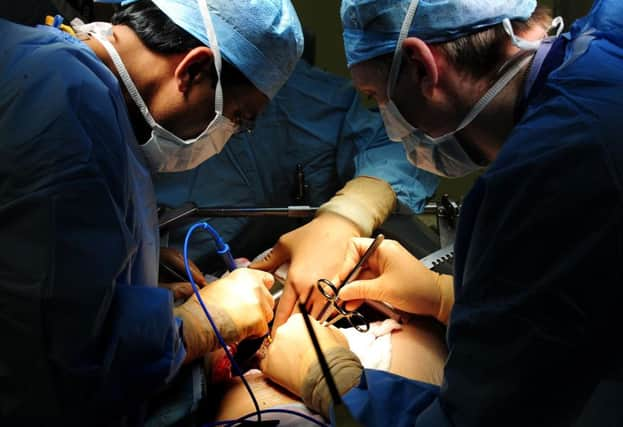Andrew Vine: State of emergency due to drunks draining NHS dry


People with trivial problems and those who drink to a stupid degree of excess are bleeding emergency departments dry, soaking up staff time and expertise when both should be exclusively devoted to patients in urgent need.
It’s time to allow staff to show the wastes of space the door, especially against the backdrop of last week’s alarming figures from NHS England about the intense pressure A&E is under.
Advertisement
Hide AdAdvertisement
Hide AdSo far in January, 45 per cent of NHS trusts have declared a major alert because of problems moving patients through emergency departments and bed shortages. Some have even had to divert those in need to other hospitals.
The shocking degree of abuse of emergency departments struck me powerfully when an 87-year-old relative fell at home and hit her head, injuring herself quite badly.
Besides a nasty gash that probably needed stitching, she started to become drowsy and had blurred vision. A call to the NHS 111 line produced the immediate advice to get her to A&E as quickly as possible, as there could be a serious head injury and a scan was needed.
Typically – and admirably – for someone of her generation, she didn’t want to make a fuss, or trouble doctors and nurses who she was sure had patients far worse off than her.
Advertisement
Hide AdAdvertisement
Hide AdIf only many of the other patients of A&E at Leeds General Infirmary that evening had taken the same attitude.
People who are seriously ill, in pain or shock, or nursing injuries that have just happened don’t sit there laughing and joking with their mates who have given them a lift. They don’t shout into mobile phones about meeting in the pub later on.
Yet that’s what half the people waiting to be seen were doing. Appearances told the story of the other half – pale, quiet, worried – the ones genuinely in need of medical attention.
Once my relative had been taken into a cubicle to be assessed, I got talking to a couple of people around me. One was there because he’d been kicked on the knee during a game of football a couple of weeks before, and it was aching.
Advertisement
Hide AdAdvertisement
Hide AdAnother had an upset stomach and had been sick down himself. I’m no doctor, but the stench of booze coming off him meant a medical degree wasn’t necessary to make a fair stab at a diagnosis.
Emergencies? Not in a million years. And yet when their turn came, they were treated with the same solicitous care and thoroughness as an old lady by now in shock as well as in pain, who was about to be admitted for observation because the scans on her head showed cause for concern.
And outside, as the timewasters and drunks were seen to, the ambulance cases coming in had to wait under the watchful care of paramedics because the staff were all busy.
Over it all hung the sense of a service badly overstretched. Not to breaking point, never that, because however bad it gets, the staff won’t let it happen, even if it means working to the point of utter exhaustion.
Advertisement
Hide AdAdvertisement
Hide AdThe commitment of those staff means they deserve better than to have their time wasted.
It’s imperative to rethink how A&E operates, and to give the staff the power to turn people away on the grounds they shouldn’t be there. This isn’t about rationing care. It’s about being rational over who gets it in an emergency department.
You’ve had an aching knee for a fortnight? Sorry to hear it. Make an appointment with the nurse at your GP’s surgery. Bye, now.
You’ve been on the lash for four hours and now your stomach hurts? Shame. Go home, sleep it off and take an Alka Seltzer in the morning. All the best.
Advertisement
Hide AdAdvertisement
Hide AdThere would need to be an increased level of security to back this up, especially when dealing with drunks who might turn aggressive, but until radical action is taken and it becomes widely appreciated that A&E isn’t going to have its time wasted, the irresponsible with trivial complaints are going to continue turning up.
The introduction of more minor injuries clinics, or on-site GPs to see non-urgent cases would be a less confrontational approach, but cost more.
And though they’re viewed with distaste in this country, setting up drunk tanks into which over-indulged revellers can be dumped to sober up by the police and paramedics who sweep them off the streets, would do much to ease the burden on A&E, especially at night.
Getting tough with timewasters isn’t the only solution to NHS shortages. But if it makes overstretched resources go that bit farther in treating people who are really in need, it will be worth it.